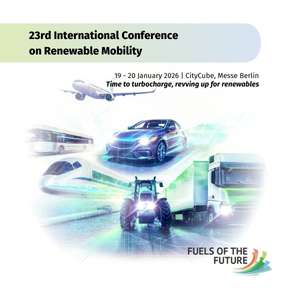Biofuels International 2017: Q&A session with bse Engineering Leipzig’s Christian Schweitzer
The Biofuels International Conference, a world leading biofuels event, will be held in Edinburgh, Scotland, on 4 and 5 October 2017, covering the whole biofuels supply chain. The show will focus on all the new developments and the latest challenges.
Topics covered in the seminars include global policy uncertainty, reintroducing E10, RED II and the future of the bioethanol market.
For the first time, the Biofuels International Conference will be co-located with Bioenergy Insight Conference & Expo 2017. Topics on the bioenergy side include financing bioenergy projects and the global biomass supply chain.
Major names including Shell, Gevo, the National Biodiesel Board, the European Biodiesel Board and Platts will attend the conference.
Among them will be Christian Schweitzer, managing director of bse Engineering Leipzig. He shares his thought on the biofuels industry below
- What role can biofuels play in the low-carbon economy?
Biofuels lower greenhouse gas emissions! Liquid fuels are necessary and biofuels are the lead fuel market for any other renewable fuels at the moment. So, we need biofuels to leave fossil-based fuels aside. We have to ask the society and the policy makers finally for a CO2 tax on all fossil products, including fuels. Furthermore, the industry has to implement a CO2 cascade with technical measures at our plants. For the biofuel sector, we are increasing the carbon resource efficiency resulting to higher yield per acre of crops. This is what we need to supply the growing world population with food and sustainable energy.
- What will the policy and operational landscape look like in 2018 in the EU?
We focus on the EU market and are involved in working groups at EU, national and regional level.
Unused resources in Europe are CO2 and electricity. This is recognised by the policy makers.
The switch from fossil-based electricity toward renewable-based electricity (Energy Transition) now receives support from the Transport Fuel Policy. Power-to-fuel will become a major issue in the future.
- What is the next trend of the industry?
Producing fuels with carbon capture and utilisation and renewable electricity will be a major trend for the industry in the future.
- What is set to be big for biofuels for the rest of the year?
On one hand, we have the Renewable Energy Directive II (RED II) that finalises the political framework towards 2030. On the other hand, we have the very current debate on diesel cars and their NOx emissions.
The fuels will diversify within the transport sectors including light transport and passenger cars, heavy duty, railroad, flight, and maritime.
We also observe determinations to renewable methanol-based fuels with very similar diesel characteristics but free of harmful emissions in the heavy duty sector. Methanol fuel produced from electricity becomes a real option for 200 million passenger cars in Europe or ships docking in Rotterdam. The railroad sector is looking to alternatives to expensive track electrification. The solutions to produce synthetic aviation fuels are in the per-concept phase. These are topics discussed in management boards now.
- What represents the biggest threat for biofuels?
The thread for first-generation biofuels is the decreasing cap and the decreasing fuel demand through e-mobility. You should also not underestimate the consumer who will change his/her behaviour dramatically. Driving a car does not belong to the lifestyle of many people.
- What is the next thing industry should do more of?
More good conferences like this one.
Schweitzer will be speaking on Day One at 3.45pm of the Biofuels International Conference. He will be talking about small-scale methanol plants in the context of the EU’s post-2020 strategy.











